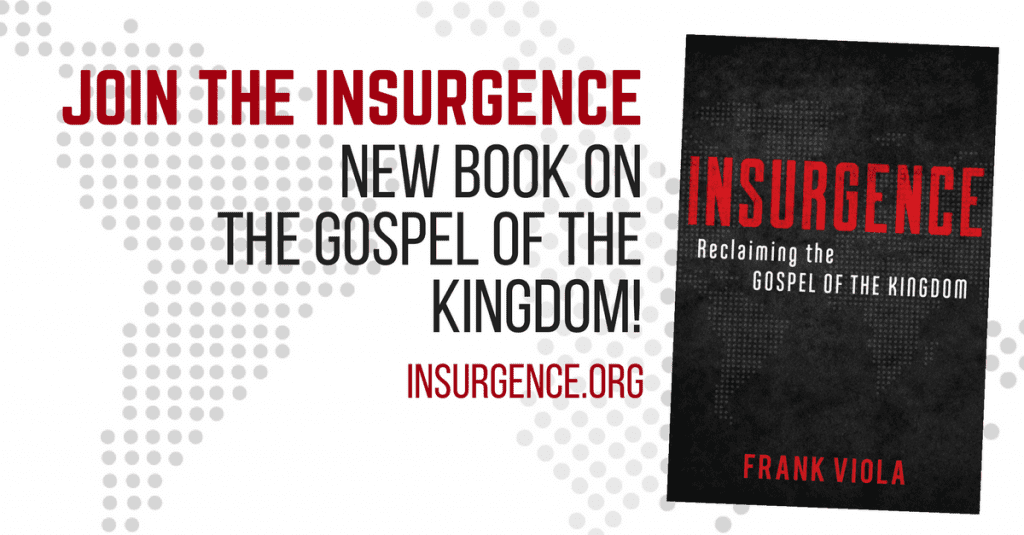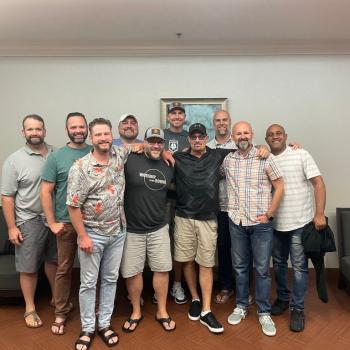Many, many years ago in a land far, far away, I wrote a little red book with George Barna that offended many people, religious people especially.
If George and I were living in the first century, that book would have gotten us boiled in olive oil.
In the 21st century, however, the book generated hate mail from Quakers and bodily threats from the Amish!
Yes, it offended religious people from every denominational quarter.
One of the first people to defend the little red book, dislodging the bogus arguments that the religiously offended leveled against it (most of whom never cracked open the cover, mind you [cough]), was the famed radio personality Brant Hansen. And he did it with grace, style, and sophisticated humor.
Fast forward 7 years later to April 14th, 2015, and Brant has written and launched his own book.
The topic? It’s about being offended.
I caught up with Brant to talk about his new book, which I heartily recommend, happily commend, personally like, and officially endorse. (That being translated means you need to get a copy! Don’t be offended by that sentence.)
The book is called Unoffendable: How Just One Change Can Make All of Life Better and here’s my interview with Brant.
Read it, then share it, please. A LOT of Christians need to hear this message.
Frankie V: why did you write this book?
Brant H: Whenever I talked about this subject on the air, nobody believed me. They were convinced “righteous anger” is a thing, and it’s a thing they should have.
Frankie V: share some of the experiences that shaped the book.
Brant H: In my time in “Christian media”, I’ve seen one book, or one trend, or one emphasis after another, calling us to live more “radical” or “extreme” lives for God.
They’ve all been, in my view, anyway, pretty much the same thing: Calling us to the same stuff, but just more of it. Give more, be more, do this, do that, be a better churchgoer or whatever.
But we’re called to be a new kind of human. We’re called to do the whole thing differently. Living in forgiveness, and forfeiting our right to anger, would make us shockingly different, indeed. And it would make us more humble, more joyful, more peaceful, and more fun to be around, I’m guessing.
Frankie V: what are some of the ingredients for becoming unoffendable?
Brant H: First, give up the idea that there is an anger that is supposed to be harbored and nursed, and it’s righteous to do so. Give up the idea, too, that even if there were such a thing as “righteous” anger for humans, you’d be the best judge of your own anger.
The Bible is consistent on this. We get angry, yes, but we’re to get rid of it. God can be trusted with it; we can’t. He’s sinless, we’re not. James writes, point-blank, in Chapter 1 that “there’s nothing about human anger that produces the righteousness of God,” and yet we persist in thinking otherwise.
Second, put yourself squarely in the role of the unmerciful servant in Jesus’ brilliant story. We’re the ones who have been forgiven much, and we think we’re entitled to anger against another sinner? Really?
Third, maybe we should pray, “Father, forgive them, for they don’t know what they’re doing.” People do horrible things. Evil things. But this prayer allows us to separate the lie from the person. We struggle not against flesh and blood, but against spiritual powers.
Last, just deciding to be “unoffendable” on a daily basis is largely do-able. Just take on that mindset, and most of the petty things are pretty easily looked past. Don’t continue to be shocked – shocked! – that people cut you off in traffic, as they have for the last 40 years. The world is fallen, folks. Got it. We know.
Frankie V: in your opinion, what should a believer do when they begin to take offense with someone or they “feel” offended?
Brant H: I have to remind myself of my own sinfulness, and God’s willingness to forgive me.
Jesus levels the moral playing field. No one is morally superior to anyone else. Scandalous? Yes, it is. But as a sinner, I happily take it.
Realize that extending forgiveness to someone isn’t based on whether the other person “deserves it” or not. It’s because God deserves it. He demands it, too.
It’s good, when someone does something wrong to you, to think, “Jesus says for me to forgive. So here’s my chance, to forgive as I’ve been forgiven.” This is why I call traffic, for example, “forgiveness practice.”
Frankie V: what is the one big thing you want people to “take away” after they read your book?
Brant H: God is amazingly good to us. He’s offering joyful rest. Let’s take Him up on it.
Frankie V: what else would you like readers to know about the book?
Brant H: I think people will suspect this book is a simple self-help book. I try to write about the topic with a light touch. But I think what we’re actually doing here is at the very heart of discipleship.
We should teach people this stuff. Is it hard? Excruciating. Like dying to ourselves, even. Like picking up our own cross, and bearing the sin of others, in order to cover it.
Someone just tweeted to me that, “We don’t HAVE to forgive. We can stay angry. There are other ways of dealing with things besides forgiving,” and you know what? They’re right. There are other ways. Many.
This way is a very particular way. A narrow one.
Few will take it.














